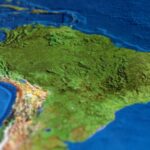
As the number of digital nomads continues to grow, many countries and regions are adjusting policies to attract this emerging workforce. Bali, a popular tourist destination in Indonesia, has become an ideal destination for digital nomads around the world in recent years. In order to attract more remote workers, the Indonesian government plans to launch a special “digital nomad visa”, which is undoubtedly good news for remote workers seeking to live and work long-term. This article will provide detailed information about the Bali digital nomad visa, including application conditions, visa types, residence and work arrangements, etc.
1. Overview of Bali Digital Nomad Visa
Bali’s Digital Nomad Visa is a special visa launched to attract remote workers from around the world. This visa is designed for those who wish to live, work and make a living in Bali by working remotely. Unlike traditional tourist visas or work visas, the Bali Digital Nomad Visa allows holders to reside legally for a long time and use Bali as a base for remote work without being restricted by the local labor market. The following is a detailed introduction to the Bali Digital Nomad Visa:
1. Target group
- remote worker: The main targets of the digital nomad visa are those remote workers who rely on the Internet for work, including freelancers, entrepreneurs, programmers, designers, content creators, online educators, marketers, etc. Whether servicing multiple clients across the globe or working remotely for a multinational company, these individuals meet the basic requirements for a visa application.
- Individuals with stable sources of income: The visa requires applicants to have a stable source of income to ensure living expenses in Bali. Typically, applicants need to prove that their monthly income reaches a certain minimum standard (such as $3,000). Proof of income can be provided through bank records, employment contracts or tax reports.
- Not dependent on Indonesian local labor market: Unlike traditional work visas, digital nomad visa holders do not require holders to participate in Indonesia’s labor market, nor do they need to pay local taxes and fees. This allows remote workers to focus on their work without having to worry about labor competition with local Indonesian businesses.
2. Unique features of visas
- Effective for a long time: Bali’s digital nomad visa usually lasts for 1 to 2 years, and applicants can apply for renewal after the visa expires. Compared with short-term tourist visas or work visas, this provides a more flexible and convenient long-term residence option, reducing the hassle of frequent renewals.
- No need for local employer support: Unlike regular work visas, digital nomad visa holders do not need to rely on an employer in Indonesia. The visa allows the holder to work freely in Bali and continue to serve clients around the world without being restricted by the local employment market.
- Live and work legally: With this visa, digital nomads can legally reside in Bali and work remotely without violating local laws. This means they don’t need to worry about visa expiration or status issues and can focus on their work.
3. Economic impact and benefits
- Promote local consumption and service industries: Although digital nomads work remotely in Bali and do not directly participate in the local labor market, their long-term residence on the island means a contribution to the local economy. Remote workers often spend money on accommodation, dining, transportation, entertainment and co-working spaces, directly driving Bali’s economic growth.
- Promote creative industries and entrepreneurial environment: Digital nomads often come from diverse backgrounds around the world, and their diverse experiences and creative abilities can breathe new life into Bali’s entrepreneurial ecosystem. Many digital nomads will also choose to launch their own online businesses in Bali, further promoting the local culture of innovation and entrepreneurship.
4. Scope of application of visa
- freelancer: Freelancers are the main people eligible for the digital nomad visa. They usually rely on their own skills to provide remote services to clients, such as graphic design, website development, copywriting, translation, etc. These freelancers usually already have a regular client base or projects and conduct business through the Internet.
- remote workers: The Bali Digital Nomad Visa is also a suitable option for employees who work for multinational companies and have remote working privileges. They can continue working for the company and enjoy Bali’s beautiful surroundings while maintaining remote communication with their global team.
- Business owners and entrepreneurs: Some digital nomads not only freelance but also run their own online businesses. For these business owners or entrepreneurs, Bali provides an ideal base to live and work. Here, they can manage their companies, grow their businesses, and interact with customers around the world via the Internet.
5. Government’s economic vision
- promote economic diversification: The Bali government hopes to attract more remote workers to the island through the digital nomad visa, which will help promote the diversification of Bali’s economy, especially in the service industry, tourism and creative industries. The consumption of digital nomads can not only increase the income of local merchants, but also promote the development of cultural and technological fields.
- Enhance Bali’s global influence: By attracting remote workers from around the world, Bali is poised to become one of the global hotspots for digital nomads. The government hopes to use this visa policy to build Bali into a global digital nomad community integrating work, life and leisure.
6. Visa application process
- Apply online: The digital nomad visa in Bali can be applied online through the Indonesian Immigration Bureau website or a certified visa agency. Applicants need to fill in personal information and provide relevant documents such as passport copies, income certificates, and health examination reports.
- Material submission and review: Applicants need to provide specific proof of income (such as bank deposit records, tax reports, etc.) and prove that they are not dependent on the Indonesian labor market. The Indonesian Immigration Bureau will review the application materials to ensure that the applicant meets the requirements.
- visa fee: The cost of a digital nomad visa will vary depending on the applicant’s nationality and visa type. Generally speaking, visa fees range from a few hundred dollars to $1,000. Specific fee information can be inquired during the application process.
2. Application conditions
The application conditions for the Bali Digital Nomad Visa are designed to ensure that applicants have sufficient financial resources to support their life in Bali and are able to adapt to the local legal and social environment. The following are detailed application conditions:
1. Income requirements
A core requirement for the Digital Nomad Visa is that applicants must demonstrate that they have sufficient sources of income to support living expenses in Bali. Generally speaking, applicants are required to demonstrate at least$3000stable income. This income standard is to ensure that applicants can afford living expenses in Bali, including daily expenses such as accommodation, meals, transportation, and health insurance, without relying on the local labor market in Indonesia.
Proof of income required usually includes:
- Bank deposit certificate: Show the bank account balance and stable deposit history to prove that the applicant has sufficient funds to support life.
- Tax records or proof of income: If the applicant is a freelancer or business owner, they are usually required to provide documents such as tax returns, contracts or invoices to prove their stable source of income.
- employment contract: For employees working remotely, provide a valid contract issued by the employer describing the employee’s remote work responsibilities and compensation.
Things to note: Income standards may change due to policy adjustments. Applicants should confirm the latest income requirements before applying and provide corresponding supporting documents based on specific circumstances.
2. Nature of remote work
The Digital Nomad Visa is designed for individuals who work remotely. Applicants must be able to prove that the nature of their job is entirely dependent on the Internet and does not require them to find a job in the local Indonesian job market. Applicable job types include but are not limited to:
- freelancer: Such as programmers, designers, content creators, translators, photographers, etc., who collaborate with global clients on projects through the Internet.
- business owner or entrepreneur: Business owners with online businesses in other countries, whether operating an e-commerce platform or providing remote consulting services.
- remote workers: Employees who work for international companies but are not restricted by geographical location, such as software engineers, digital marketing experts, online education instructors, etc.
Applicants need to provide:
- Work contract or project certificate: For example, the freelancer’s client contract, company dispatch letter, etc. to prove that the work content has nothing to do with the local labor market in Bali.
- Statement of the nature of work: If the applicant is a business owner, he or she can submit company registration documents, business license, etc. to indicate that the business he/she operates is an online business.
- Evidence of remote work: For example, communication records with clients, project plans or work outputs can prove that the applicant indeed relies on remote work rather than the local labor market.
3. Health and Safety
In order to ensure that applicants can live and work healthily and safely in Indonesia, applicants are required to provide a health certificate. This certification should demonstrate that the applicant does not have communicable diseases, mental health problems, or other health problems that may affect his or her normal life.
Specific requirements include:
- Health examination report: It is usually necessary to provide a health examination report issued by a professional doctor to prove that the applicant does not carry infectious diseases (such as tuberculosis, AIDS, etc.) and other diseases that affect public health.
- Vaccination records: According to the requirements of the Indonesian government, certain vaccines (such as yellow fever vaccine) may be required before entry. Applicants need to provide relevant vaccination certificates.
- Proof of medical insurance: Applicants must have adequate medical insurance to ensure adequate medical coverage during their stay in Bali. Insurance needs to cover basic medical needs such as sudden illness, first aid, and hospitalization.
4. Valid passport
Applicants must hold a valid passport, and the passport must be valid for at least6 monthsabove. Because the validity period of an Indonesian visa is usually 1 to 2 years, the applicant’s passport must not expire within the validity period of the visa.
Applicants need to provide:
- Passport copy: Applicants need to submit a copy of the personal information page of their passport to ensure the accuracy of personal information.
- Passport validity check: It is necessary to confirm that the validity period of the passport is sufficient to support the visa application and residence time in Bali.
3. Visa type and duration
Bali’s digital nomad visa provides remote workers with flexible living and working arrangements, often with longer validity periods, allowing applicants to live in Bali for a long time without the need to frequently renew their visa. Below is a detailed description of this visa type:
1. Visa validity period
Digital Nomad Visa in Bali usually has1 to 2 yearsThe specific period of validity depends on the applicant’s personal situation and the policies and regulations of the Indonesian government. For those digital nomads who plan to live in Bali long-term and work remotely, the longer validity period of the visa greatly reduces the hassle and inconvenience of re-applying after the visa expires.
- 1 year validity: For those applying for a digital nomad visa for the first time, they are usually granted a 1-year visa. This type of visa is suitable for remote workers who plan to settle in Bali for a short period of time to carry out projects or work.
- 2 years validity: Applicants with stable remote work arrangements, especially those who can provide proof of long-term contracts or stable income, may be granted a 2-year visa. This type of visa is suitable for digital nomads who intend to live and work in Bali for a long period of time.
Extension of visa validity: If the applicant plans to continue living in Bali and continue working remotely, he or she can apply for renewal before the visa expires. When renewing, applicants are usually required to provide some updated financial information, work contracts, or other relevant evidence to confirm that they continue to meet visa requirements.
2. Renewal policy
Bali’s Digital Nomad Visa hasRenewal flexibility, allowing visa holders to continue to legally reside in Indonesia after the visa expires. The renewal process is relatively simple, but there are a few things to note:
- Renewal application time: It is generally recommended to start preparing renewal materials 2 to 3 months before the visa expires. Early preparation can avoid any disruption to your residency due to missing materials or delays in approval.
- Proof of income and employment: When renewing the visa, the applicant needs to provide relevant proof of income and work again to ensure that his income is stable and comes from legal sources. Documents such as bank deposit certificates, tax records, company contracts, etc. are usually required to be submitted.
- health and safety requirements: Although in most cases health examination does not require resubmission, in some cases the Indonesian Immigration Authority may require an updated health certificate, especially if the applicant has any health issues or requires special attention.
Renewal processThis usually involves applying online, submitting necessary documents, waiting for approval, and receiving your new visa. In some special cases, if the applicant wishes to change the nature of the job or source of income, additional materials or interviews may be required.
3. Applicable groups of visas
This visa is designed forremote workerDesigned for many different types of digital nomads, including:
- freelancer: Such as programmers, designers, translators, content creators, etc., who work with global customers through the Internet to complete tasks.
- Business owners and entrepreneurs: For example, business owners who operate online stores, e-commerce platforms, digital marketing businesses, etc., or entrepreneurs who operate remote teams.
- remote workers: Employees who work for foreign companies but do not need to go to the company’s office, such as software developers, teachers, marketing experts, etc.
4. VISA VERSUS OTHER RESIDENCE OPTIONS
Compared with traditional tourist visas or work visas, the advantages of the Bali Digital Nomad Visa are:
- No need to leave the country frequently: Traditional tourist visas usually require leaving the country every 30 or 60 days for visa renewal, while the digital nomad visa allows the holder to live in Bali for a long time without frequent departures.
- No need to rely on the local job market: Unlike the work visa, the digital nomad visa does not require applicants to find a job locally in Indonesia, which provides greater freedom and flexibility for remote workers.
- Long-term residence and stability: The longer validity period of the digital nomad visa allows applicants to enjoy a more stable living environment in Bali without having to worry about visa expiration.
4. Residence and work arrangements
Bali is an ideal work-life destination for digital nomads, attracting a large number of remote workers due to its unique natural landscape, pleasant climate, vibrant community and efficient infrastructure. Here are details about living and working arrangements in Bali for digital nomads:
1. Accommodation options
Accommodation options for digital nomads in Bali are plentiful and varied to suit every budget and lifestyle. Here are a few common accommodation types:
- Ubud: Ubud is Bali’s cultural and artistic hub, attracting a large number of remote workers looking for tranquility and inspiration. There are many co-living spaces and resorts designed specifically for digital nomads, providing comfortable and modern accommodation facilities. Co-living spaces in Ubud often offer shared kitchens, lounge areas, and private rooms, making them ideal for remote workers who value social interaction and collaboration.
- Recommended accommodation types: Co-living spaces, resorts, private villas, boutique hotels.
- price range: Approximately **$300-$1000** per month, depending on location, accommodation type and facilities.
- Recommended link:Co-living space recommendation—Dojo Bali
- Seminyak: Seminyak is one of Bali’s most popular tourist areas, known for its modern accommodation and high-end dining. There are many high-end hotels and resorts as well as apartments and private villas available for short-term rental. Seminyak is suitable for digital nomads who want a more urban lifestyle.
- Recommended accommodation types: Luxury villas, high-end apartments, boutique hotels.
- price range: Approximately **$600-$2000** per month, depending on the luxury and location of the accommodation.
- Recommended link:Seminyak accommodation recommendations—Airbnb
- Kuta: Kuta is one of the liveliest areas in Bali, known for its bustling business district and active nightlife. Despite Kuta’s relatively noisy atmosphere, it is still a popular choice for many digital nomads, especially those who want to quickly integrate into local social circles and enjoy a lower cost of living.
- Recommended accommodation types: Apartments, cheap hotels and backpacker hostels.
- price range: Approximately **$200-$800** per month, suitable for remote workers with a tight budget.
- Shared accommodation and co-living spaces: Co-living is one of the most popular accommodation options for digital nomads in Bali. These spaces not only provide comfortable private rooms, but also include shared kitchens, laundry facilities and social spaces. In this way, digital nomads not only save money but also connect and collaborate with other workers.
- Example:Dojo Bali、Outpost Bali
Overall, accommodation in Bali is relatively reasonably priced and suitable for digital nomads of all budgets. From basic accommodation to luxury villas, you’ll find something to suit your needs.
2. Workspace
Bali has many coworking spaces suitable for remote working. These places usually provide high-speed Internet connections, comfortable office environment and networking opportunities with other remote workers. Here are some popular co-working spaces:
- Dojo Bali: Dojo Bali, located in Seminyak, is one of the most famous co-working spaces in Bali. Offering high-speed internet, private offices, meeting rooms, and outdoor relaxation areas, it is the first choice for many digital nomads. Dojo Bali also regularly holds various networking events, lectures and workshops to encourage interaction and cooperation among community members.
- facility: High-speed Internet, meeting rooms, leisure areas, free coffee.
- cost: The daily fee is about **$15-$20**, and the monthly fee is about **$150-$250**.
- Recommended link:Dojo Bali
- Tegallalang Hub: Tegallalang Hub in Ubud offers a more tranquil working environment for remote workers who want to escape the hustle and bustle and immerse themselves in nature. Facilities include co-working spaces, meeting rooms and relaxing garden settings.
- facility: High-speed Internet, comfortable workstations, lounge areas.
- cost: The daily rental fee is **$10-$15**, and the monthly fee is about **$150-$200**.
- Recommended link:Tegallalang Hub
- Outpost Bali: Outpost Bali is another co-working space that is very popular among digital nomads, especially for remote workers who need to work efficiently while also enjoying a vacation lifestyle. Outpost Bali has multiple locations, located in Seminyak and Ubud, providing a variety of flexible working environments.
- facility: High-speed internet, private offices, meeting facilities, lounge areas, kitchen.
- cost: The daily rental fee is **$20-$25**, and the monthly fee is about **$250-$350**.
- Recommended link:Outpost Bali
These co-working spaces not only provide fast and stable Internet connections, but also provide a series of supporting facilities, such as printers, drinks, rest areas, etc., to ensure that remote workers can work comfortably and efficiently. In addition, many co-working spaces also provide members with social activities such as lectures, trainings, meetups, and other community events, increasing the opportunity to interact with other digital nomads.
3. Cost of living
Compared to other regions such as Europe and the United States, the cost of living in Bali is very low, which is why it has become one of the popular destinations for digital nomads around the world. Here are some cost of living estimates:
- stay: As mentioned above, accommodation in Bali is relatively affordable, with options ranging from budget accommodation to luxury villas, depending on individual needs. For long-term digital nomads, living in a co-living space or shared apartment is the most cost-effective option.
- FOOD: The cost of dining in Bali is much lower than in Western countries. Street food usually only costs **$2-$4**, while a full meal at a mid-range restaurant costs around **$5-$10**. For digital nomads who are accustomed to cooking their own meals, the cost of purchasing fresh local ingredients is also relatively low.
- transportation: Transportation in Bali is relatively convenient and cheap. Renting a motorcycle is usually $50-$100per month, while the cost of a taxi or ride-sharing service varies based on the distance traveled. Generally, the cost per trip is$2-$10**。
- daily expenses: Basic expenses such as water, electricity, Internet, etc. are about **$50-$100** per month, depending on usage.
5. How to apply for Bali digital nomad visa
Applying for a digital nomad visa in Bali requires some preparation, but the overall process is relatively simple. The following are detailed application steps and requirements:
1. Apply online
Applications for the Bali Digital Nomad Visa can be made in two main ways: through the Indonesian Immigration Bureau’s official website or through a certified visa agency. Applying online is a convenient and efficient way, especially for those applicants who are unfamiliar with Indonesian law or who need professional help. The application steps are as follows:
- Visit official website: First, visit the official website of the Indonesian Immigration Bureau and find the application page related to the digital nomad visa. Some visa agencies also provide online application platforms to provide more help and services.
- Register an account: Before applying, applicants usually need to create an account on the Indonesian Immigration Bureau website or visa agency website. When registering, you need to provide basic personal information (such as name, date of birth, contact information, etc.).
- Fill out the application form: Submit a detailed application form and fill in relevant information such as personal background, remote work type, source of income, etc. This information will help USCIS assess the applicant’s eligibility.
2. Material submission
After submitting the application form, applicants are required to provide a variety of supporting documents to prove their eligibility. The following are common required materials:
- Passport copy: Applicants need to provide a scanned copy of a valid passport, and the passport must be valid for at least six months.
- Proof of income: Applicants are usually required to prove that they have a stable source of income, usually at least $3,000 per month. Documents such as bank statements, tax records, or freelance contracts can be provided as proof of income.
- health certificate: In order to ensure that the applicant can live in Bali and does not pose a threat to public health, the applicant is required to provide a health certificate to ensure that there are no infectious diseases or other health problems.
- Work contract or proof of freelance work: If you are a freelancer, the applicant needs to provide the freelancer’s work contract or employment relationship certificate. If you are an entrepreneur, you need to provide business registration certificate or relevant business documents.
- tax records: Some applicants may be required to provide tax records in recent years to prove the legality and stability of their income.
Ensure that the documents submitted are accurate to avoid application delays due to incomplete materials.
3. Visa fees
The cost of a Bali digital nomad visa varies depending on the visa type and the nationality of the applicant. Generally speaking, visa fees usually range from a few hundred dollars to more than a thousand dollars, and the specific fees will be revealed during the application process. The fees mainly include visa processing fees and other related administrative fees. After the fees are paid, the applicant will receive a voucher confirming payment.
- Cost range: GenerallyUSD 300-1200, the specific fees vary depending on the applicant’s nationality and visa type.
- Payment method: Applicants can usually pay the fee by credit card, bank transfer or through the payment method specified by the visa agency.
Visa fees are subject to change, so applicants are advised to confirm the exact fees before applying.
4. Approval and issuance
After submitting complete application materials and paying relevant fees, the Indonesian Immigration Bureau will begin reviewing the application. This process usually takes several weeks, depending on the complexity of the application and the workload of the USCIS.
- review process: The Indonesian Immigration Bureau will review the submitted materials to check whether the applicant meets the requirements for the digital nomad visa. This includes verifying information such as income, health, and employment contracts.
- Approval results: After passing the review, the applicant will receive a visa approval notice. Some visas may require applicants to go to an Indonesian embassy or consulate abroad for a final interview or to submit supplementary materials.
- Visa issuance: Once approved, the applicant will receive a digital nomad visa, usually in the form of an electronic visa, which can be downloaded via email or from the Indonesian Immigration Bureau’s official website. After the visa is issued, the applicant can legally live and work in Bali.
6. Advantages of Digital Nomad Visa
The Bali Digital Nomad Visa offers numerous advantages to remote workers, attracting more and more digital nomads from around the world to work and live on this beautiful island. The following are the main advantages of the Bali Digital Nomad Visa, with a detailed analysis of how it brings a convenient and comfortable living and working experience to digital nomads:
1. Residence for a long time
One of the biggest advantages of the digital nomad visa is that it provides a residence permit for up to 1 to 2 years, giving it greater flexibility than traditional short-term tourist visas. This means that remote workers can live in Bali for a long time and avoid frequent visa renewals or the inconvenience of visa expiration.
- Benefits of long-term residence: The validity period of 1 to 2 years provides digital nomads with sufficient time to plan their life and work, and enjoy a more stable living environment. Remote workers can set up their own living and working arrangements in Bali without restrictions, while not having to worry about having to reapply for a visa every few months.
- Renewable: The renewal policy of this visa allows the holder to settle in Bali for a long time, and the renewal procedure is relatively simple, further increasing the stability of life.
2. Convenient working environment
Bali offers a wealth of workspaces and a high-quality living environment for digital nomads, which is an important advantage for remote workers. Digital nomads can work in dedicated co-working spaces on the island, which not only provide them with high-speed internet and a comfortable work environment, but also inspire and promote communication and collaboration with other remote workers.
- co-working space: Bali has several popular co-working spaces such asDojo Bali、Outpost BaliandTegallalang Hubetc., these places are equipped with efficient work facilities, such as stable Internet, meeting rooms, printing equipment and social areas. Many spaces also host regular workshops and networking events to promote networking.
- high quality living environment: In addition to the work space, the overall living environment in Bali is also very suitable for digital nomads. Tranquil natural landscapes such as beautiful beaches, rice fields and tropical forests help remote workers relax and be more productive. The unique charm of Bali also allows for a perfect combination of work and life.
3. Tax benefits
The tax incentives provided by the Indonesian government for digital nomads are also one of its important advantages. Since digital nomads’ jobs are not dependent on Indonesia’s local job market, they may benefit from certain tax breaks or incentives. This means that remote workers may not need to bear excessive tax burdens while working in Bali.
- tax relief: For remote workers who do not generate income in the local Indonesian market, Indonesia may exempt certain types of taxes, and specific policies will change based on local tax law adjustments. Digital nomads can enjoy a high-quality life while reducing their tax burden and increasing their overall income level.
- policy adjustment: It should be noted that tax preferential policies may change at any time, and applicants need to regularly pay attention to the latest policies of the Indonesian government to ensure compliance with current tax regulations.
4. Cultural and natural experiences
In addition to working and living, Bali’s rich culture and natural landscape are also one of the important factors attracting digital nomads. Bali is not only a great place to work, but also a destination to relax physically and mentally and broaden your horizons.
- unique cultural atmosphere: Bali has a strong traditional Indonesian culture. The island’s temples, festivals, traditional dances and artistic works are all full of unique features. Digital nomads can experience these unique cultural activities in their free time and enjoy the strong cultural atmosphere.
- natural landscape: Bali is known as the “Island of the Gods”, with beautiful beaches, magnificent volcanoes and lush rice fields and other natural landscapes. Whether relaxing on the beach or hiking in the rainforest, Bali’s natural environment offers digital nomads an ideal place to relax and rejuvenate.
- Relax physically and mentally: Bali is a world-famous yoga and meditation destination. There are a large number of yoga centers, meditation halls and spas on the island, providing good physical and mental recovery space for digital nomads. In addition to their daily routine, digital nomads can maintain good mental and physical health through these activities.
in conclusion
Bali’s digital nomad visa provides an ideal platform for global remote workers to live and work. This visa not only provides legal long-term residency for digital nomads, but also injects new vitality into Indonesia’s economy, especially in the creative industries, services and tourism. With flexible visa validity, simplified application procedures and the advantage of not having to rely on the local labor market, Bali is attracting more and more remote workers to come and work. In addition, through this policy, the government promotes the construction of a global digital nomad community and enhances Bali’s influence on the international stage. For digital nomads, Bali is not only an inspiring place to work, but also a place full of potential for entrepreneurship and life. As policies continue to be optimized, Bali will undoubtedly continue to become a popular choice for remote workers around the world.





